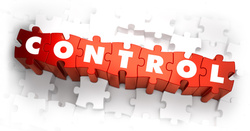Control
ComplianceTech®

Control is a concept so central in Regulation that, in the difficult exercise of translation, the English term of "Regulation" or the expression "Regulatory system" are often translated, for example in French,, by the French word "control" (contrôle). Indeed, the Regulator controls the sector for which he is responsible. This control is carried out ex ante by the adoption of standards of behavior, whether the Regulator prohibits behavior or obliges the operators to do so. In addition, the Regulators exercises his control powers through the power to approve companies entering the sector or the power to certify certain types of products sold on the markets for which he is responsible. In addition, he continuously monitors the sectors for which he is responsible since his function is either to construct them to bring them to maturity or to remain in balance between the principle of competition and another concern, for example to ensure that they do not fall into a systemic crisis.
These ex ante controls radically distinguish the regulatory authority from the competition authority, which intervenes only ex post. Finally, the regulatory authority controls the sector in ex post: in this he works on a temporal continuum, sanctioning the failings he finds on the part of the operators to the prescriptions he has adopted himself. he often has the power to settle disputes if two operators compete in a dispute between them and bring it before him.
This control function specific of the regulatory authority, which it often shares with the traditional administration and which opposes it to the activity of the competition authority and the courts, is made difficult by its possible lack of independence. Indeed, because the Regulator is a State boddy, if the regulator has to control a public operator, it may risk being captured by the government, since the whole organization of the regulatory system must therefore ensure its independence not only statutory but also budgetary in relation to it. This risk of capture is permanent not only because of the government but also because of the sector. Secondly, control can be inefficient if the regulator lacks adequate, reliable and timely information, risk generated by information asymmetry.
To fight against this, according to the childish image of the stick and the carrot, we must at the same time give the regulator powers to extirpate information that the operators do not want to provide, the texts never ceasing to give regulators new powers, such as perquisitions power ou sanction ou settlemeent. Symmetrically, operators are encouraged to provide information to the market and the regulator, for example through leniency programs or the multiplication of information to be inserted in company documents. Finally, there is a difficult balance between the need to combat the capture of the regulator and the need to reduce the asymmetry of information since the best way for the latter to obtain information from the sector is by frequent attendance by operators: , This exchange that they accept very willingly is the open voice to the capture. It is therefore an art for the regulator to keep operators at a distance while obtaining from them information that only untended relationships allow him to obtain.
Moreover, the Compliance Law which is in the process of being put in place is intended to resolve this major difficulty, since the operator becomes the primary agent for the implementation of the Regulation Law, whose aims are internalized in the " crucial " and global operators perator, operator crucial and global, the Regulator ensuring the effective structural change of the operator to realize these goals of this Global Regulation Law.
comments are disabled for this article